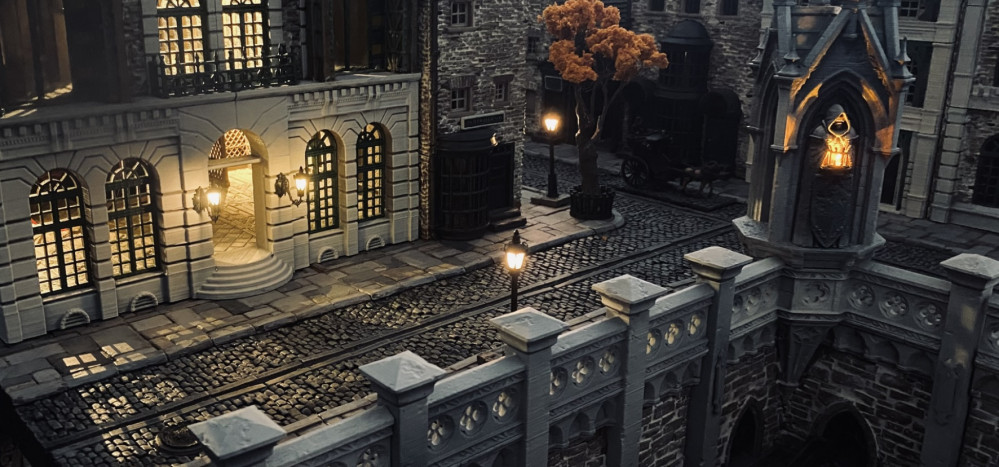
It's going to be something...
Choke Points and Districts
From the outset, I wanted multiple crossings and ways of getting around the table to try to minimalise the choke points. When you are doing a town board there will always be some, but I wanted to avoid the scenario where everyone was trying to get up the same stairs or across the same bridge. I wanted to be able to have outflanking manoeuvrers possible so that if a player does decide to try to hold one bridge there were still ways of getting behind them.
A little street plan
Red arrows show stairs up and down between elevations.
Blue circles show access and exit points to the sewer system, which can also allow access to the upper and lower elevations.
Green rectangles show crossings from both raised areas and passageways between buildings that may or may not be immediately identifiable from the other images.
This also does not take into account that a lot of the buildings have both front and back doors that can be exploited. The large Aeronef station for example has a fully playable interior with 2 lifts for access to different floors withing the structure.
I also wanted to be able to play over multiple parts of the table for different scenarios. Most skirmish-level games use a smaller board than 6′ x 4′ and I wanted to be able to set up the entire table and then have different things happening throughout the layout.
There are a few distinctive districts that are noticeable, all of different shapes and sizes. This is not to say that a scenario could fall between the different areas and incorporate parts of two or more sections.
Orange – Industrial
Blue – Market
Pink – Aeronef Port
Yellow – Slum
Then of course there are the sewers that run around the outside of the table and also expand beneath the table in different areas. However, if I plan on running a sewer game other than the sewers around the edges, I will leave all the buildings off to allow access to the layout beneath.
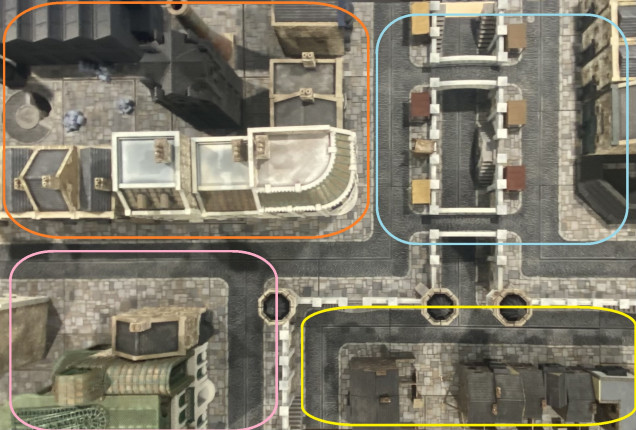 Image shows the rough outlines of each district although they can be expanded and contracted as required.
Image shows the rough outlines of each district although they can be expanded and contracted as required.Of course, this is just using the one layout of the terrain tiles. These are all modular and can be taken apart and reassembled in a completely different set-up if needed. I can then completely change the look of the whole table. Maybe I want just a central raised area and the rest at a lower level, no problem. Maybe I want the sunken road area and with no bridges, no problem, I can do that too.
At the moment I have just had this all set out in one configuration for the photographs, but it doesn’t have to be this way.





























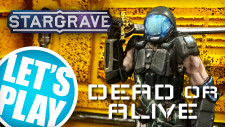

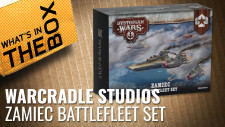

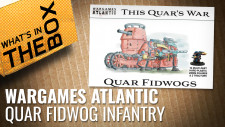



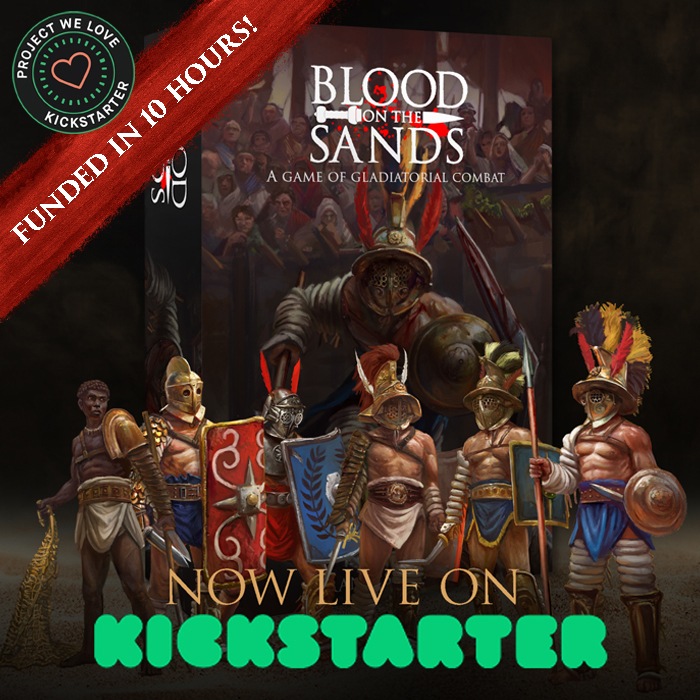



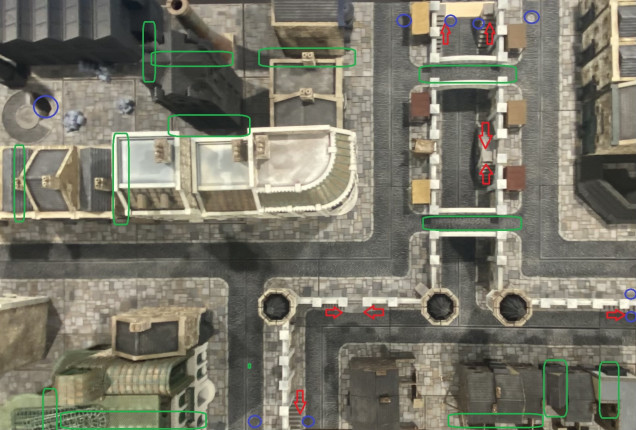


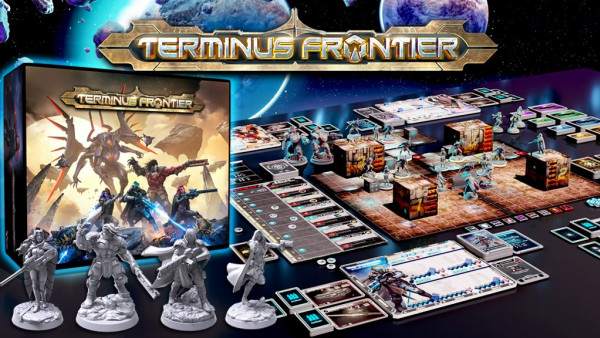

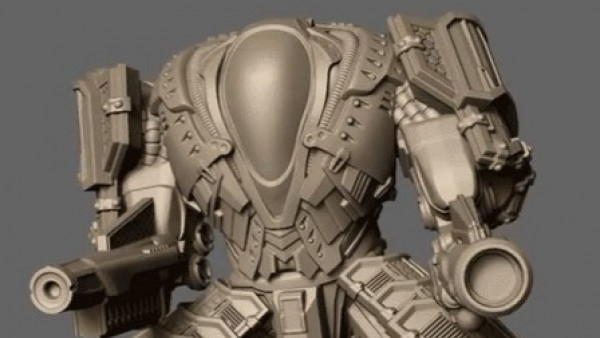


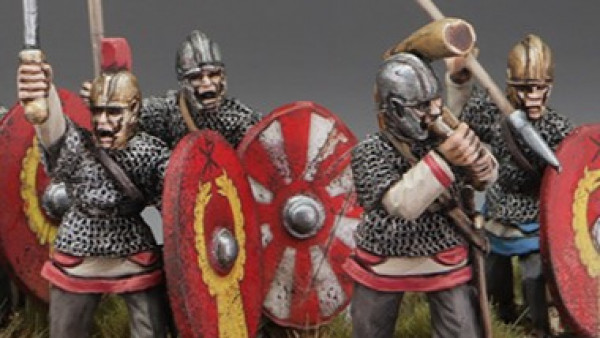

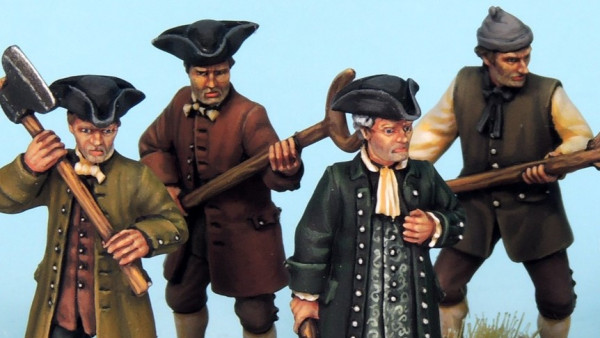

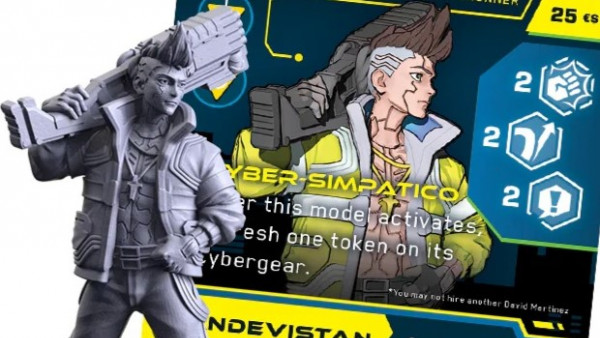
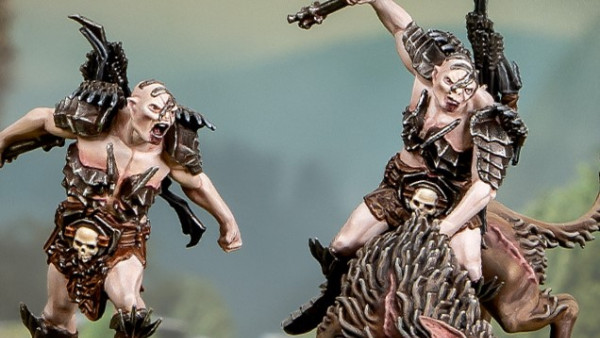
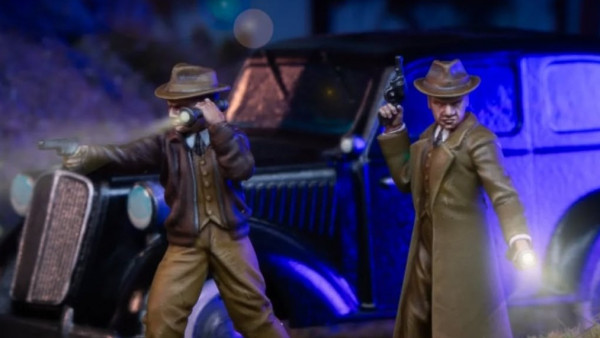


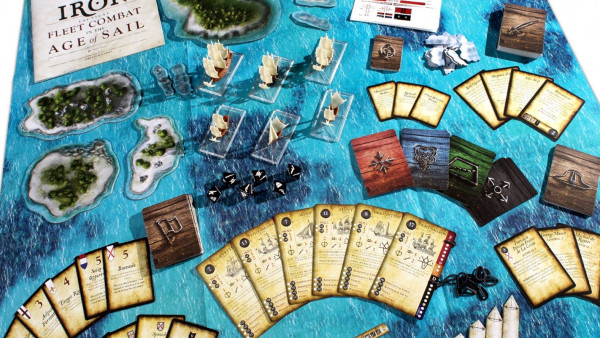
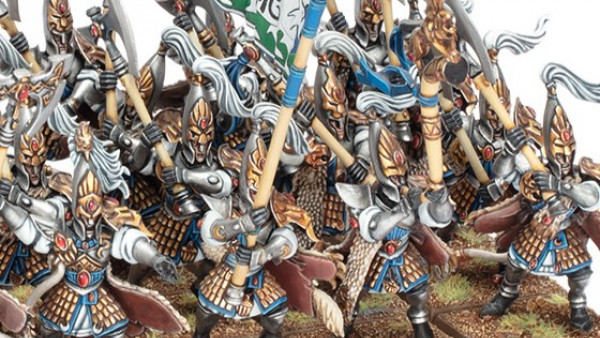
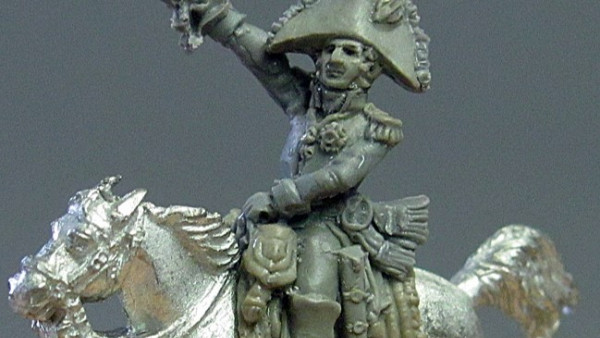
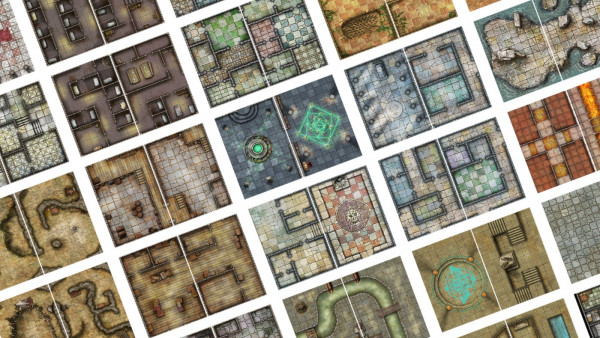
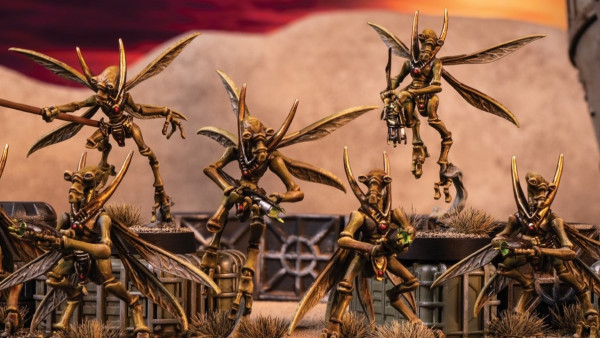
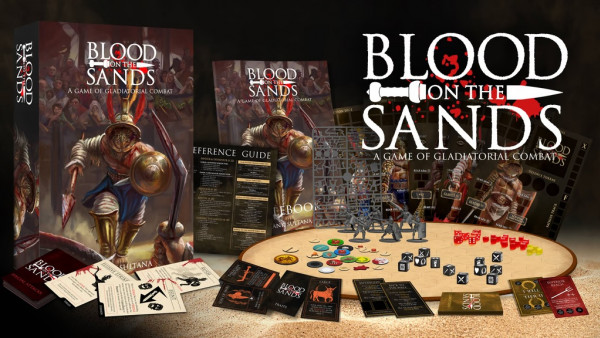
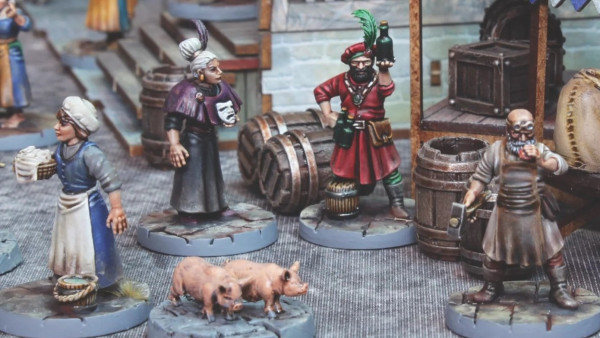
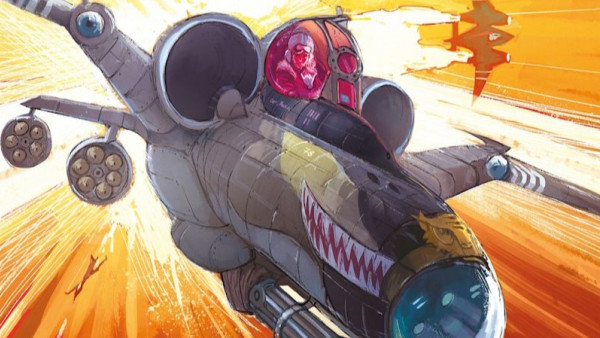
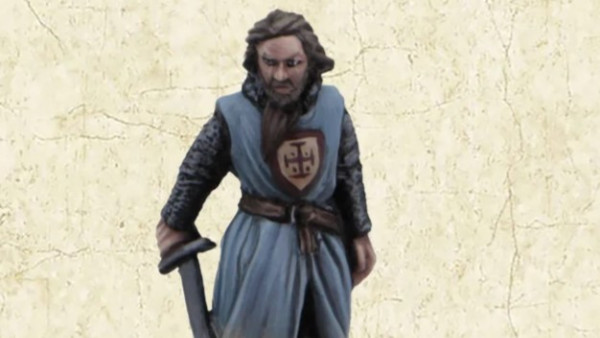
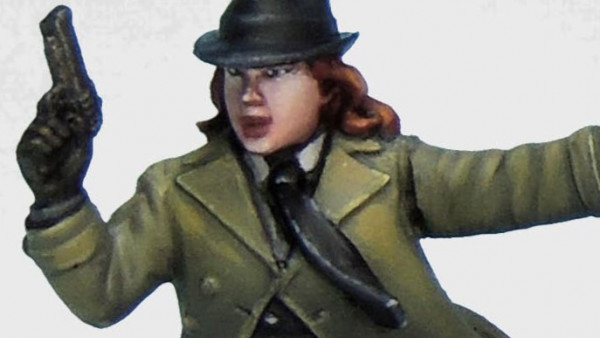
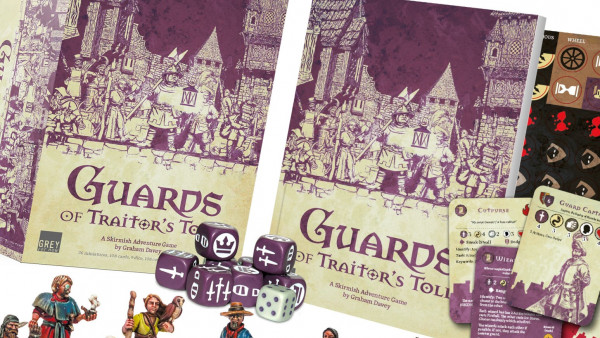
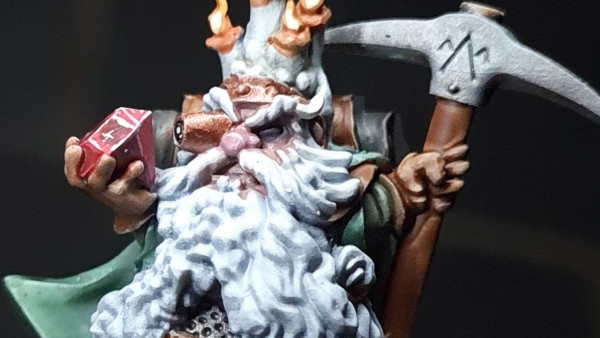
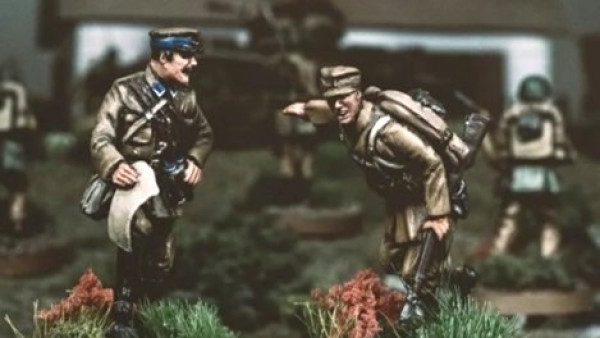
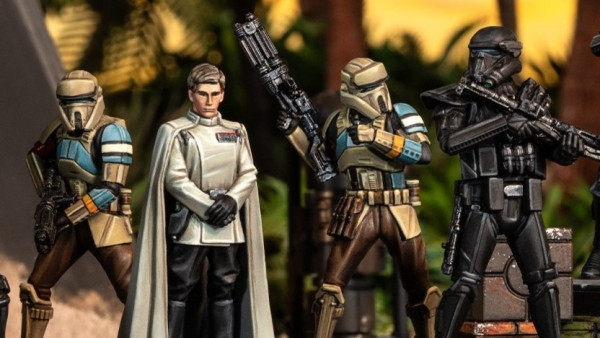
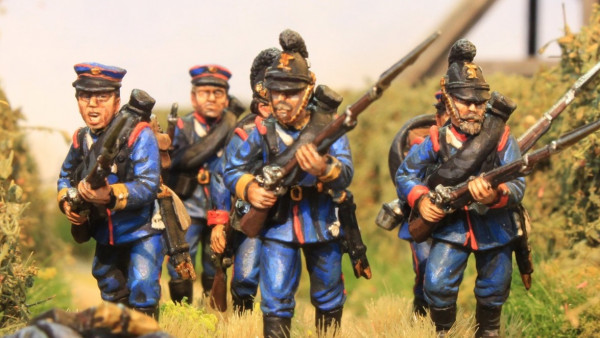

Leave a Reply